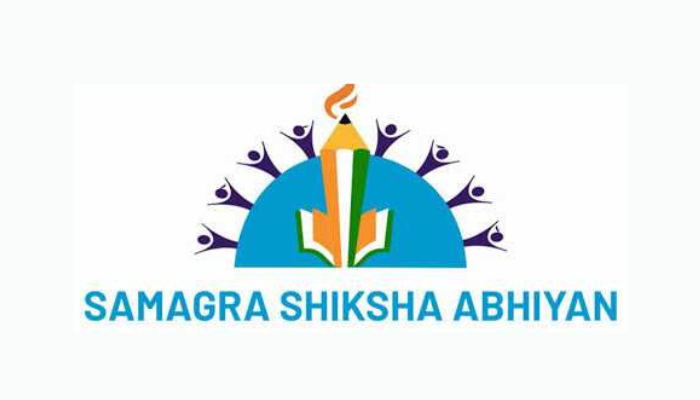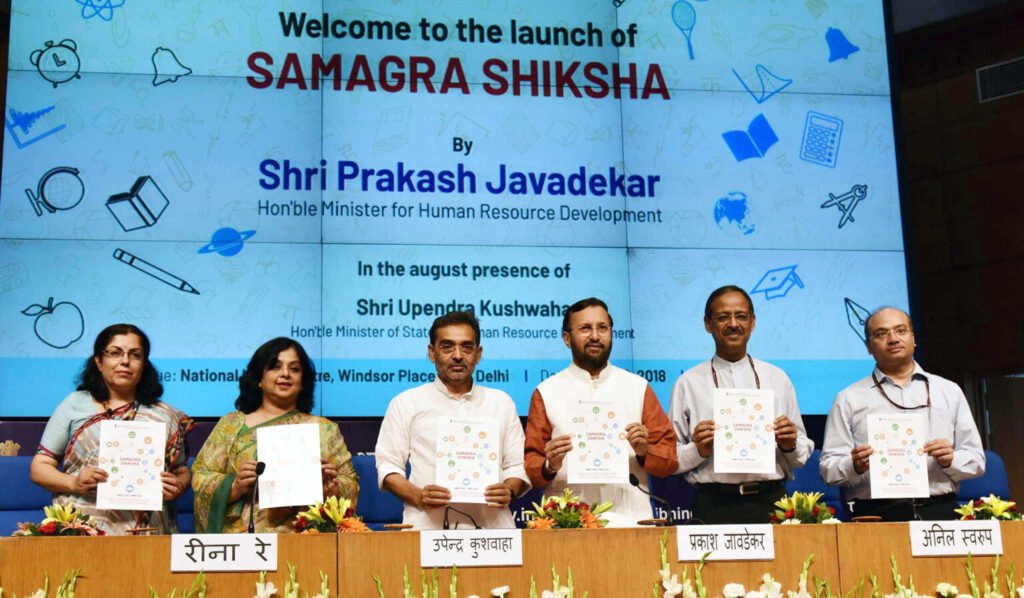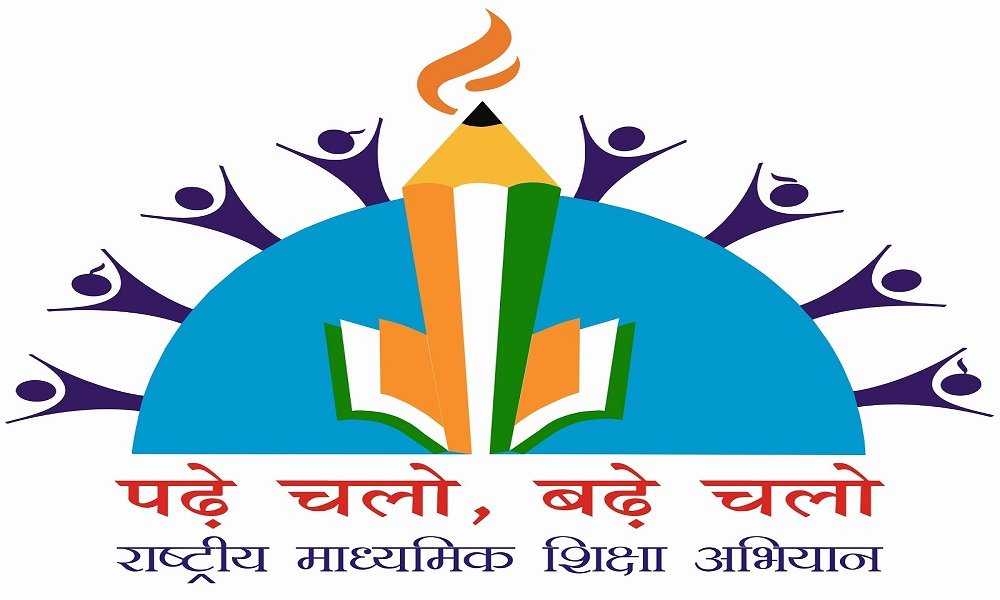Introduction to Samagra Shiksha
The Samagra Shiksha, a centrally sponsored initiative by the Department of School Education & Literacy under the Ministry of Education, is a comprehensive scheme that extends its reach from pre-primary to senior secondary levels, encompassing children with special needs. This integrated approach strives to address the diverse educational requirements of all children, ensuring inclusivity and equal opportunities for learning.
One pivotal aspect of the Samagra Shiksha is its dedicated component specifically designed for Inclusive Education for Children with Special Needs (CwSN). This facet of the program focuses on providing tailored interventions to cater to the unique needs of differently-abled children. These interventions encompass a spectrum of services, including the provision of aids, appliances, assistive devices, and teaching-learning materials (TLMs) aimed at creating an enabling learning environment.
Under the umbrella of Samagra Shiksha, various provisions have been set in place to support the educational journey of differently-abled children comprehensively. This encompasses not only academic aids but extends to addressing logistical challenges that may impede their access to education. Provisions such as transportation, escort services, and scribe allowances are incorporated to facilitate seamless participation in the educational process.

The Inclusive Education component also incorporates annual block identification and assessment camps. These camps serve as crucial forums for identifying the specific needs of differently-abled children at the grassroots level, enabling a targeted and personalized approach to their education. Stipends for differently-abled girls further underline the commitment to breaking down barriers to education, ensuring that financial constraints do not hinder their access to schooling.
In essence, Samagra Shiksha’s Inclusive Education component is a multifaceted initiative that recognizes the diverse challenges faced by differently-abled children and endeavors to provide holistic support. This support spans the realms of infrastructure, academic resources, and logistical assistance, with the overarching goal of fostering an inclusive and equitable educational landscape.
Table of Contents
Holistic Support through Academic Resources:
Central to the Inclusive Education component is the provision of aids, appliances, assistive devices, and teaching-learning materials. These resources are tailored to meet the specific learning needs of differently-abled children, ensuring that the educational environment is conducive to their overall development. The availability of such resources not only enhances the learning experience but also empowers these children to actively engage with the curriculum.
A key feature of this academic support is the emphasis on inclusivity within mainstream educational settings. By integrating specialized resources seamlessly into regular classrooms, Samagra Shiksha aims to create an environment where differently-abled children can learn alongside their peers. This not only fosters a sense of belonging but also promotes understanding and acceptance among all students, contributing to the development of an inclusive and empathetic school culture.
Logistical Support for Seamless Educational Participation:
Recognizing that educational access goes beyond the classroom, Samagra Shiksha’s Inclusive Education component extends its support to address logistical challenges faced by differently-abled children. Transportation services are provided to ensure that these students can commute to and from school with ease. This not only addresses the practical aspects of attendance but also alleviates the burden on families, removing a significant barrier to regular school attendance.
In addition to transportation, escort services are made available, recognizing the importance of a supportive companion in navigating the school environment. This provision is especially crucial for children with severe disabilities who may require assistance in their daily activities. By offering escort services, Samagra Shiksha reinforces its commitment to creating an inclusive educational space that accommodates the diverse needs of all students.
Moreover, the inclusion of scribe allowances acknowledges the varied learning styles and challenges faced by differently-abled children. This provision ensures that students who may require assistance in writing or documenting their responses during examinations have the necessary support. By addressing these nuanced needs, Samagra Shiksha strives to create an equitable examination experience, leveling the playing field for all students.

Block Identification and Assessment Camps:
At the heart of the Inclusive Education component are the annual block identification and assessment camps. These camps serve as proactive forums for identifying and addressing the specific needs of differently-abled children at the grassroots level. By conducting thorough assessments, educators and specialists can gain insights into the individual requirements of each child, enabling the formulation of targeted intervention strategies.
The camps also play a pivotal role in raising awareness and understanding within local communities. By actively involving parents, community leaders, and local authorities, Samagra Shiksha fosters a collaborative approach to inclusive education. This community engagement is instrumental in dispelling myths and misconceptions surrounding disability, promoting acceptance, and creating a supportive network for differently-abled children.
Through these assessment camps, Samagra Shiksha establishes a continuous feedback loop that informs and refines the implementation of inclusive education policies. This iterative process ensures that interventions remain responsive to the evolving needs of the target population, fostering a dynamic and adaptive educational framework.
Stipends for Differently-abled Girls:
In a concerted effort to address gender-specific challenges, Samagra Shiksha’s Inclusive Education component includes stipends for differently-abled girls. This strategic initiative recognizes the intersectionality of disability and gender, acknowledging the additional barriers faced by girls with disabilities in accessing education.
The provision of stipends serves as a financial support mechanism, mitigating economic constraints that may otherwise hinder the educational aspirations of differently-abled girls. By directly addressing the economic dimension of accessibility, Samagra Shiksha aims to empower girls with disabilities, enabling them to pursue education without the burden of financial limitations.
Furthermore, the stipend initiative contributes to breaking down societal norms and stereotypes that may perpetuate gender-based discrimination. By actively investing in the education of differently-abled girls, Samagra Shiksha challenges preconceived notions, fostering a more inclusive and equitable society.

Conclusion:
In conclusion, Samagra Shiksha’s Inclusive Education component is a testament to the commitment of the Department of School Education & Literacy to create an inclusive and equitable educational landscape. By addressing the diverse needs of differently-abled children through a multifaceted approach, this initiative goes beyond conventional academic support, encompassing logistical and financial dimensions.
The provision of aids, appliances, assistive devices, and teaching-learning materials reflects a commitment to creating a learning environment that is responsive to the individual needs of each child. Moreover, the inclusion of transportation, escort services, and scribe allowances recognizes the holistic nature of educational access, addressing both physical and cognitive aspects.
The annual block identification and assessment camps serve as a proactive strategy to identify and address the evolving needs of differently-abled children at the grassroots level. By fostering community engagement and collaboration, Samagra Shiksha ensures that its interventions remain contextually relevant and responsive to the dynamic nature of inclusive education.
The stipends for differently-abled girls further underscore the program’s commitment to addressing intersectional challenges, recognizing the unique barriers faced by girls with disabilities. By providing financial support, Samagra Shiksha not only facilitates access to education but also contributes to dismantling gender-based stereotypes and biases.
In essence, Samagra Shiksha’s Inclusive Education component is a holistic and comprehensive initiative that recognizes the diverse needs of differently-abled children. By addressing academic, logistical, and financial dimensions, this program exemplifies a paradigm shift towards a more inclusive and equitable educational system, where every child, regardless of ability, can thrive and reach their full potential.

